Tag: cosmology
Bioquark Inc. — Biotech and Beyond — Aquarian Radio
https://www.spreaker.com/user/aquarianradio/ira-s-pastor-ascension-center-12-05-17-h?utm_medium=widget&utm_source=user%3A4875932&utm_term=episode_title
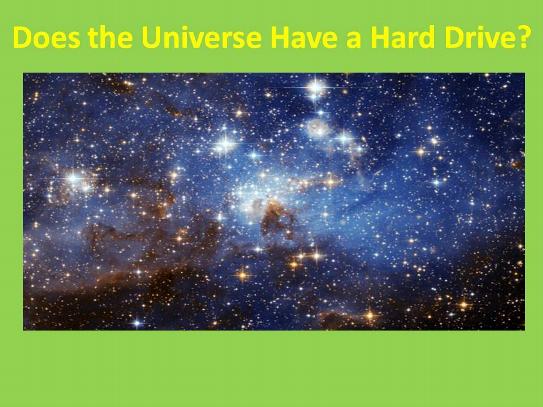
Does The Universe Have a Hard Drive?
Zura Kakushadze is lead author of this peer reviewed paper published by the Free University of Tbilisi. It describes an information paradox that arises in a materialist’s description of the Universe—if we assume that the Universe is 100% quantum. The observation of the paradox stems from an interdisciplinary thought process whereby the Universe can be viewed as a “quantum computer”.
The presentation is intentionally nontechnical to make it accessible to a wide a readership.

Our Universe is Fine Tuned for Life—Why?
Consider how many natural laws and constants—both physical and chemical—have been discovered since the time of the early Greeks. Hundreds of thousands of natural laws have been unveiled in man’s never ending quest to understand Earth and the universe.
I couldn’t name 1% of the laws of nature and physics. Here are just a few that come to mind from my high school science classes. I shall not offer a bulleted list, because that would suggest that these random references to laws and constants are organized or complete. It doesn’t even scratch the surface…
Newton’s Law of force (F=MA), Newton’s law of gravity, The electromagnetic force, strong force, weak force, Avogadro’s Constant, Boyle’s Law, the Lorentz Transformation, Maxwell’s equations, laws of thermodynamics, E=MC2, particles behave as waves, superpositioning of waves, universe inflation rate, for every action… etc, etc.
For some time, physicists, astronomers, chemists, and even theologians have pondered an interesting puzzle: Why is our universe so carefully tuned for our existence? And not just our existence—After all, it makes sense that our stature, our senses and things like muscle mass and speed have evolved to match our environment. But here’s the odd thing—If even one of a great many laws, properties or constants were off by even a smidgen, the whole universe could not exist—at least not in a form that could support life as we imagine it! Even the laws and numbers listed above. All of creation would not be here, if any of these were just a bit off…
Well, there might be something out there, but it is unlikely to have resulted in life—not even life very different than ours. Why? Because without the incredibly unique balance of physical and chemical properties that we observe, matter would not coalesce into stars, planets would not crunch into balls that hold an atmosphere, and they would not clear their path to produce a stable orbit for eons. Compounds and tissue would not bind together. In fact, none of the things that we can imagine could exist.
Of course, theologians have a pat answer. In one form or another, religions answer all of cosmology by stating a matter of faith: “The universe adheres to God’s design, and so it makes sense that everything works”. This is a very convenient explanation, because these same individuals forbid the obvious question: ‘Who created God?’ and ‘What existed before God?’ Just ask Bill Nye or Bill Maher. They have accepted offers to debate those who feel that God created Man instead of the other way around.
Scientists, on the other hand, take pains to distance themselves from theological implications. They deal in facts and observable phenomenon. Then, they form a hypotheses and begin testing. That’s what we call the scientific method.
If any being could evolve without the perfect balance of laws and constants that we observe, it would be a single intelligence distributed amongst a cold cloud of gas. In fact, a universe that is not based on many of the observed numbers (including the total mass of everything in existence) probably could not be stable for very long.
 Does this mean that it’s all about you?! Are you, Dear reader, the only thing in existence?—a living testament to René Descartes?
Does this mean that it’s all about you?! Are you, Dear reader, the only thing in existence?—a living testament to René Descartes?
Don’t discount that notion. Cosmologists acknowledge that your own existence is the only thing of which you can be absolutely sure. (“I think. Therefore, I am”). If you cannot completely trust your senses as s portal to reality, then no one else provably exists. But, most scientists (and the rest of us, too) are willing to assume that we come from a mother and father and that the person in front of us exists as a separate thinking entity. After all, if we can’t start with this assumption, then the rest of physics and reality hardly matters, because we are too far removed from the ‘other’ reality to even contemplate what is outside of our thoughts.
Two questions define the field of cosmology—How did it all begin and why does it work? Really big questions are difficult to test, and so we must rely heavily on tools and observation:
• Is the Big Bang a one-off event, or is it one in a cycle of recurring events?
• Is there anything beyond the observable universe? (something apart from the Big Bang)
• Does natural law observed in our region of the galaxy apply everywhere?
• Is there intelligent life beyond Earth?
Having theories that are difficult to test does not mean that scientists aren’t making progress. Even in the absence of frequent testing, a lot can be learned from observation. Prior to 1992, no planet had ever been observed or detected outside of our solar system. For this reason, we had no idea of the likelihood that planets form and take orbit around stars.
Today, almost 2000 exoplanets have been discovered with 500 of them belonging to multiple planetary systems. All of these were detected by indirect evidence—either the periodic eclipsing of light from a star, which indicates that something is in orbit around it, or subtle wobbling of the star itself, which indicates that it is shifting around a shared center of gravity with a smaller object. But wait! Just this month, a planet close to our solar system (about 30 light years away) was directly observed. This is a major breakthrough, because it gives us an opportunity to perform spectral analysis of the planet and its atmosphere.
Is this important? That depends on goals and your point of view. For example, one cannot begin to speculate on the chances for intelligent life, if we have no idea how common or unusual it is for a star to be orbited by planets. It is a critical factor in the Drake Equation. (I am discounting the possibility of a life form living within a sun, not because it is impossible or because I am a human-chauvinist, but because it would not likely be a life form that we will communicate with in this millennium).
 Of course, progress sometimes raises completely new questions. In the 1970s, Francis Drake and Carl Sagan began exploring the changing rate of expansion between galaxies. This created an entirely new question and field of study related to the search for dark matter.
Of course, progress sometimes raises completely new questions. In the 1970s, Francis Drake and Carl Sagan began exploring the changing rate of expansion between galaxies. This created an entirely new question and field of study related to the search for dark matter.
Concerning the titular question: “Why is the universe fine-tuned for life?”, cosmologist Stephen Hawking offered an explanation last year that might help us to understand. At last, it offers a theory, even if it is difficult to test. The media did their best to make Professor Hawking’s explanation digestible, explaining it something like this [I am paraphrasing]:
There may be multiple universes. We observe only the one in which we exist. Since our observations are limited to a universe with physical constants and laws that resulted in us—along with Stars, planets, gravity and atmospheres, it seems that the conditions for life are all too coincidental. But if we imagine countless other universes outside of our realm (very few with life-supporting properties), then the coincidence can be dismissed. In effect, as observers, we are regionalized into a small corner.
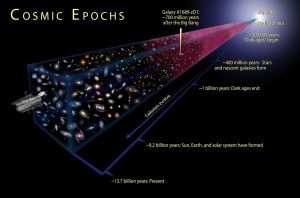 The press picked up on this explanation with an unfortunate headline that blared the famous Professor had proven that God does not exist. Actually, Hawking said that miracles stemming out of religious beliefs are “not compatible with science”. Although he is an atheist, he said nothing about God not existing. He simply offered a theory to explain an improbable coincidence.
The press picked up on this explanation with an unfortunate headline that blared the famous Professor had proven that God does not exist. Actually, Hawking said that miracles stemming out of religious beliefs are “not compatible with science”. Although he is an atheist, he said nothing about God not existing. He simply offered a theory to explain an improbable coincidence.
I am not a Cosmologist. I only recently have come to understand that it is the science of origin and is comprised of astronomy, particle physics, chemistry and philosophy. (But not religion—please don’t go there!). If my brief introduction piques your interest, a great place to spread your wings is with Tim Maudlin’s recent article in Aeon Magazine, The Calibrated Cosmos. Tim succinctly articulates the problem of a fine-tuned universe in the very first paragraph:
“Theories now suggest that the most general structural elements of the universe — the stars and planets, and the galaxies that contain them — are the products of finely calibrated laws and conditions that seem too good to be true.”
And: “Had the constants of nature taken slightly different values, we would not be here.”
The article delves into the question thoroughly, while still reading at a level commensurate with Sunday drivers like you and me. If you write to Tim, tell him I sent you. Tell him that his beautifully written article has added a whole new facet to my appreciation for being!
Philip Raymond is Co-Chair of The Cryptocurrency Standards Association and CEO of Vanquish Labs.
This is his fourth article for Lifeboat Foundation and his first as an armchair cosmologist.
Related: Quantum Entanglement: EPR Paradox
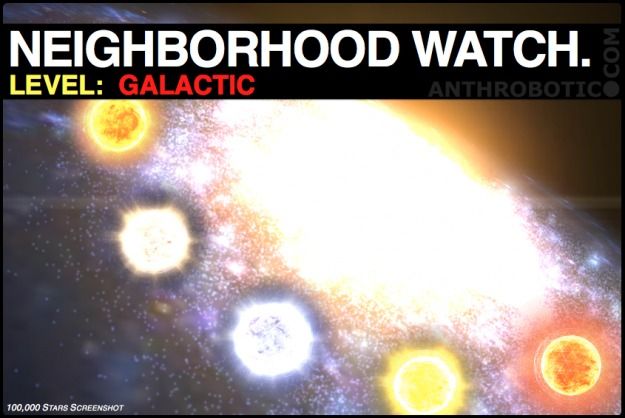
Google’s 100,000 Stars & the Paradigmatic Disruption of Large-Scale Innovation Revisited
The 100,000 Stars Google Chrome Galactic Visualization Experiment Thingy
So, Google has these things called Chrome Experiments, and they like, you know, do that. 100,000 Stars, their latest, simulates our immediate galactic zip code and provides detailed information on many of the massive nuclear fireballs nearby.

It’s humbling, beautiful, and awesome. Now, is 100, 000 Stars perfectly accurate and practical for anything other than having something pretty to look at and explore and educate and remind us of the enormity of our quaint little galaxy among the likely 170 billion others? Well, no — not really. But if you really feel the need to evaluate it that way, you are a unimaginative jerk and your life is without joy and awe and hope and wonder and you probably have irritable bowel syndrome. Deservedly.
The New Innovation Paradigm Kinda Revisited
Just about exactly one year ago technosnark cudgel Anthrobotic.com was rapping about the changing innovation paradigm in large-scale technological development. There’s chastisement for Neil deGrasse Tyson and others who, paraphrasically (totally a word), have declared that private companies won’t take big risks, won’t do bold stuff, won’t push the boundaries of scientific exploration because of bottom lines and restrictive boards and such. But new business entities like Google, SpaceX, Virgin Galactic, & Planetary Resources are kind of steadily proving this wrong.
Google in particular, a company whose U.S. ad revenue now eclipses all other ad-based business combined, does a load of search-unrelated, interesting little and not so little research. Their mad scientists have churned out innovative, if sometimes impractical projects like Wave, Lively, and Sketchup. There’s the mysterious Project X, rumored to be filled with robots and space elevators and probably endless lollipops as well. There’s Project Glass, the self-driving cars, and they have also just launched Ingress, a global augmented reality game.
In contemporary America, this is what cutting-edge, massively well-funded pure science is beginning to look like, and it’s commendable. So, in lieu of an national flag, would we be okay with a SpaceX visitor center on the moon? Come on, really — a flag is just a logo anyway!
Let’s hope Google keeps not being evil.
[VIA PC MAG]
[100,000 STARS ANNOUNCEMENT — CHROME BLOG]
(this post originally published at www.anthrobotic.com)
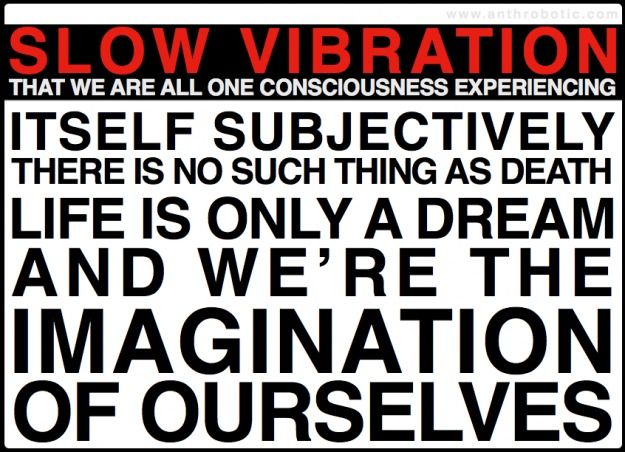
Today, a Young Man on Acid Realized that all Matter is Merely Energy Condensed to a…
…here’s Tom with the Weather.
That right there is comedian/philosopher Bill Hicks, sadly no longer with us. One imagines he would be pleased and completely unsurprised to learn that serious scientific minds are considering and actually finding support for the theory that our reality could be a kind of simulation. That means, for example, a string of daisy-chained IBM Super-Deep-Blue Gene Quantum Watson computers from 2042 could be running a History of the Universe program, and depending on your solipsistic preferences, either you are or we are the character(s).
It’s been in the news a lot of late, but — no way, right?
Because dude, I’m totally real
Despite being utterly unable to even begin thinking about how to consider what real even means, the everyday average rational person would probably assign this to the sovereign realm of unemployable philosophy majors or under the Whatever, Who Cares? or Oh, That’s Interesting I Gotta Go Now! categories. Okay fine, but on the other side of the intellectual coin, vis-à-vis recent technological advancement, of late it’s actually being seriously considered by serious people using big words they’ve learned at endless college whilst collecting letters after their names and doin’ research and writin’ and gettin’ association memberships and such.
So… why now?
Well, basically, it’s getting hard to ignore.
It’s not a new topic, it’s been hammered by philosophy and religion since like, thought happened. But now it’s getting some actual real science to stir things up. And it’s complicated, occasionally obtuse stuff — theories are spread out across various disciplines, and no one’s really keeping a decent flowchart.
So, what follows is an effort to encapsulate these ideas, and that’s daunting — it’s incredibly difficult to focus on writing when you’re wondering if you really have fingers or eyes. Along with links to some articles with links to some papers, what follows is Anthrobotic’s CliffsNotes on the intersection of physics, computer science, probability, and evidence for/against reality being real (and how that all brings us back to well, God).
You know, light fare.
First — Maybe we know how the universe works: Fantastically simplified, as our understanding deepens, it appears more and more the case that, in a manner of speaking, the universe sort of “computes” itself based on the principles of quantum mechanics. Right now, humanity’s fastest and sexiest supercomputers can simulate only extremely tiny fractions of the natural universe as we understand it (contrasted to the macro-scale inferential Bolshoi Simulation). But of course we all know the brute power of our computational technology is increasing dramatically like every few seconds, and even awesomer, we are learning how to build quantum computers, machines that calculate based on the underlying principles of existence in our universe — this could thrust the game into superdrive. So, given ever-accelerating computing power, and given than we can already simulate tiny fractions of the universe, you logically have to consider the possibility: If the universe works in a way we can exactly simulate, and we give it a shot, then relatively speaking what we make ceases to be a simulation, i.e., we’ve effectively created a new reality, a new universe (ummm… God?). So, the question is how do we know that we haven’t already done that? Or, otherwise stated: what if our eventual ability to create perfect reality simulations with computers is itself a simulation being created by a computer? Well, we can’t answer this — we can’t know. Unless…
[New Scientist’s Special Reality Issue]
[D-Wave’s Quantum Computer]
[Possible Large-scale Quantum Computing]
Second — Maybe we see it working: The universe seems to be metaphorically “pixelated.” This means that even though it’s a 50 billion trillion gajillion megapixel JPEG, if we juice the zooming-in and drill down farther and farther and farther, we’ll eventually see a bunch of discreet chunks of matter, or quantums, as the kids call them — these are the so-called pixels of the universe. Additionally, a team of lab coats at the University of Bonn think they might have a workable theory describing the underlying lattice, or existential re-bar in the foundation of observable reality (upon which the “pixels” would be arranged). All this implies, in a way, that the universe is both designed and finite (uh-oh, getting closer to the God issue). Even at ferociously complex levels, something finite can be measured and calculated and can, with sufficiently hardcore computers, be simulated very, very well. This guy Rich Terrile, a pretty serious NASA scientist, sites the pixelation thingy and poses a video game analogy: think of any first-person shooter — you cannot immerse your perspective into the entirety of the game, you can only interact with what is in your bubble of perception, and everywhere you go there is an underlying structure to the environment. Kinda sounds like, you know, life — right? So, what if the human brain is really just the greatest virtual reality engine ever conceived, and your character, your life, is merely a program wandering around a massively open game map, playing… well, you?
[Lattice Theory from the U of Bonn]
[NASA guy Rich Terrile at Vice]
[Kurzweil AI’s Technical Take on Terrile]
Thirdly — Turns out there’s a reasonable likelihood: While the above discussions on the physical properties of matter and our ability to one day copy & paste the universe are intriguing, it also turns out there’s a much simpler and straightforward issue to consider: there’s this annoyingly simplistic yet valid thought exercise posited by Swedish philosopher/economist/futurist Nick Bostrum, a dude way smarter that most humans. Basically he says we’ve got three options: 1. Civilizations destroy themselves before reaching a level of technological prowess necessary to simulate the universe; 2. Advanced civilizations couldn’t give two shits about simulating our primitive minds; or 3. Reality is a simulation. Sure, a decent probability, but sounds way oversimplified, right?
Well go read it. Doing so might ruin your day, JSYK.
[Summary of Bostrum’s Simulation Hypothesis]
Lastly — Data against is lacking: Any idea how much evidence or objective justification we have for the standard, accepted-without-question notion that reality is like, you know… real, or whatever? None. Zero. Of course the absence of evidence proves nothing, but given that we do have decent theories on how/why simulation theory is feasible, it follows that blithely accepting that reality is not a simulation is an intrinsically more radical position. Why would a thinking being think that? Just because they know it’s true? Believing 100% without question that you are a verifiably physical, corporeal, technology-wielding carbon-based organic primate is a massive leap of completely unjustified faith.
Oh, Jesus. So to speak.
If we really consider simulation theory, we must of course ask: who built the first one? And was it even an original? Is it really just turtles all the way down, Professor Hawking?
Okay, okay — that means it’s God time now
Now let’s see, what’s that other thing in human life that, based on a wild leap of faith, gets an equally monumental evidentiary pass? Well, proving or disproving the existence of god is effectively the same quandary posed by simulation theory, but with one caveat: we actually do have some decent scientific observations and theories and probabilities supporting simulation theory. That whole God phenomenon is pretty much hearsay, anecdotal at best. However, very interestingly, rather than negating it, simulation theory actually represents a kind of back-door validation of creationism. Here’s the simple logic:
If humans can simulate a universe, humans are it’s creator.
Accept the fact that linear time is a construct.
The process repeats infinitely.
We’ll build the next one.
The loop is closed.
God is us.
Heretical speculation on iteration
Even wonder why older polytheistic religions involved the gods just kinda setting guidelines for behavior, and they didn’t necessarily demand the love and complete & total devotion of humans? Maybe those universes were 1st-gen or beta products. You know, like it used to take a team of geeks to run the building-sized ENIAC, the first universe simulations required a whole host of creators who could make some general rules but just couldn’t manage every single little detail.
Now, the newer religions tend to be monotheistic, and god wants you to love him and only him and no one else and dedicate your life to him. But just make sure to follow his rules, and take comfort that your’re right and everyone else is completely hosed and going to hell. The modern versions of god, both omnipotent and omniscient, seem more like super-lonely cosmically powerful cat ladies who will delete your ass if you don’t behave yourself and love them in just the right way. So, the newer universes are probably run as a background app on the iPhone 26, and managed by… individuals. Perhaps individuals of questionable character.
The home game:
Latest title for the 2042 XBOX-Watson³ Quantum PlayStation Cube:*
Crappy 1993 graphic design simulation: 100% Effective!
- *Manufacturer assumes no responsibility for inherently emergent anomalies, useless
inventions by game characters, or evolutionary cul de sacs including but not limited to:
The duck-billed platypus, hippies, meat in a can, reality TV, the TSA,
mayonaise, Sony VAIO products, natto, fundamentalist religious idiots,
people who don’t like homos, singers under 21, hangovers, coffee made
from cat shit, passionfruit iced tea, and the pacific garbage patch.
And hey, if true, it’s not exactly bad news
All these ideas are merely hypotheses, and for most humans the practical or theoretical proof or disproof would probably result in the same indifferent shrug. For those of us who like to rub a few brain cells together from time to time, attempting to both to understand the fundamental nature of our reality/simulation, and guess at whether or not we too might someday be capable of simulating ourselves, well — these are some goddamn profound ideas.
So, no need for hand wringing — let’s get on with our character arc and/or real lives. While simulation theory definitely causes reflexive revulsion, “just a simulation” isn’t necessarily pejorative. Sure, if we take a look at the current state of our own computer simulations and A.I. constructs, it is rather insulting. So if we truly are living in a simulation, you gotta give it up to the creator(s), because it’s a goddamn amazing piece of technological achievement.
Addendum: if this still isn’t sinking in, the brilliant
Dinosaur Comics might do a better job explaining:
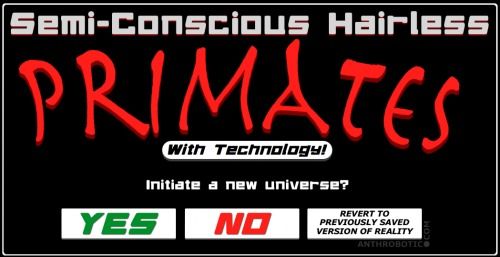
(This post originally published I think like two days
ago at technosnark hub www.anthrobotic.com.)
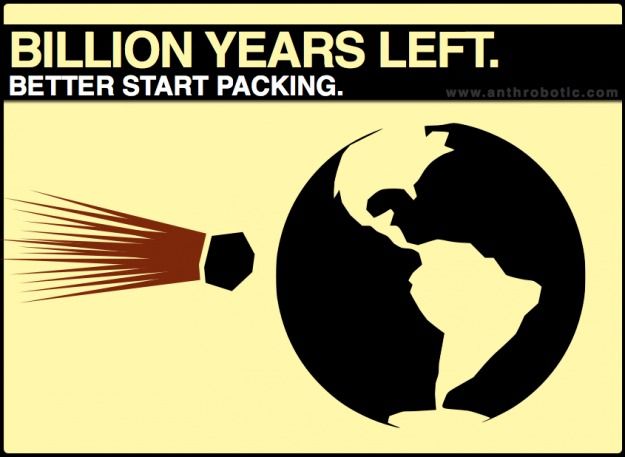
On Leaving the Earth. Like, Forever. Bye-Bye.
Technology is as Human Does
When one of the U.S. Air Force’s top future strategy guys starts dorking out on how we’ve gotta at least begin considering what to do when a progressively decaying yet apocalyptically belligerent sun begins BBQing the earth, attention is payed. See, none of the proposed solutions involve marinade or species-level acquiescence, they involve practical discussion on the necessity for super awesome technology on par with a Kardeshev Type II civilization (one that’s harnessed the energy of an entire solar system).
Because Not if, but WHEN the Earth Dies, What’s Next for Us?
Head over to Kurzweil AI and have a read of Lt. Col. Peter Garretson’s guest piece. There’s perpetuation of the species stuff, singularity stuff, transhumanism stuff, space stuff, Mind Children stuff, and plenty else to occupy those of us with borderline pathological tech obsessions.
[BILLION YEAR PLAN — KURZWEIL AI]
[U.S. AIR FORCE BLUE HORIZONS FUTURE STUFF PROJECT]